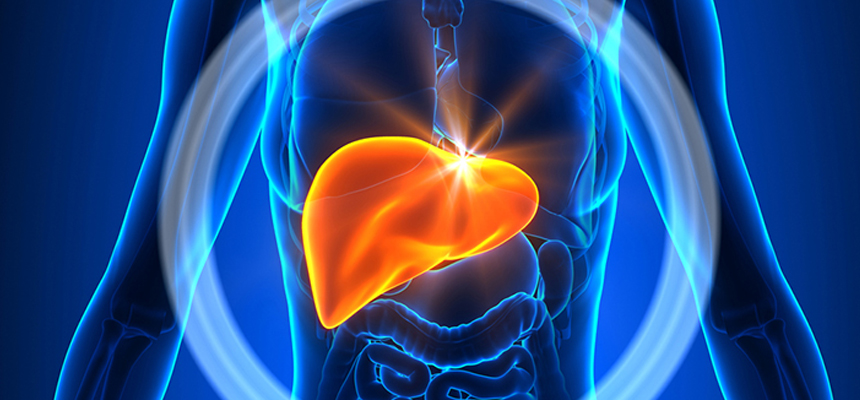Allow the heart to pump smoothly

Heart failure Heart failure is a condition in which the heart cannot pump enough blood to meet the body's needs. Heart failure does not mean that your heart has stopped or is about to stop working. It means that your heart is not able to pump blood the way it should. It can affect right side (Right Heart Failure), or left side (Left Heart Failure) or both sides of the heart.The weakening of the heart's pumping ability causes blood and fluid to back up into the lungs,The buildup of fluid in the feet, ankles and legs - called edema,Tiredness and shortness of breath. Heart failure is one of the most common reasons for hospital admissions among those 65 years and older.
Dr Ashwin Tumkur, Consultant Interventional Cardiologist at Yashoda Hospital explains:
Q1 When does an heart failure occur?
Most people who develop heart failure have (or had) another heart condition first. The most common conditions that can lead to heart failure are coronary artery disease, high blood pressure and previous heart attack. Other causes can be anemia, heart valve disease, hypothyroidism, infections, alcoholism etc. If you’ve been diagnosed with one of these conditions, it’s critical that you manage it carefully to help prevent the onset of heart failure.
 Q2. In which age group does heart failure occur in India?
Q2. In which age group does heart failure occur in India?
Heart failure is more likely to happen as we age, but anyone can develop heart failure, which is a serious, long-term (chronic) condition. But you can live a full and active life with the right medical treatment and the attention you pay to your lifestyle.
Q3. What is the difference between heart failure and heart attack?
Heart failure and heart attack are both forms of heart disease. They have some common causes. But they also differ in key ways. Most heart attacks happen suddenly when one of the arteries leading to the heart becomes blocked and cuts off the blood flow. Without oxygen, the heart muscles start to die. Heart failure, on the other hand, usually develops gradually. The heart muscle becomes weaker and has trouble pumping blood to nourish the cells in your body.
This is a chronic condition that gradually gets worse. But medications can help you live longer and better with it. Heart attacks can lead to heart failure by weakening the heart's pumping ability. Sometimes, heart failure comes on suddenly after a heart attack. Usually the symptoms are severe at first. This is called acute heart failure. But you can get better quickly with treatment and medication.
Q4. How long do people live with heart failure?
While advancements have been made, 50% of patients will have an average life expectancy of five years. For those with advanced heart failure, up to 90% will pass away within one year. A person can live with congestive heart failure of a moderate stage for an average of ten years.
Q5. Why does heart failure occur?
This can happen for many reasons- commonly because of medical condition, which has damaged the heart (e.g coronary artery disease with heart attack) or placed extra workload ( e.g high blood pressure) on your heart. This damage or extra workload can either affect the squeezing ( contraction) or filling ( relaxation) of heart , or both. If your heart does not contract as it should it will not be able to pump sufficient blood in your ventricles out of your heart. This is called Systolic Heart Failure. If your heart is not able to empty and relax fully, less blood will be able to enter your heart, and therefore less blood is available to pump out of your heart .Such a situation is called Diastolic Heart Failure. Heart failure has two main affects . Firstly, not enough blood is getting to your body, which may cause fatigue. Secondly, blood backs up waiting to enter your heart. This build-up of blood causes fluid to leak out of your blood vessels and into the sorrounding tissues. This leads to fluid accumulation in your legs and abdomen as well as fluid congestion in your lungs.
Q6. How can heart failure be prevented?
The key to preventing heart failure is to reduce your risk factors.
![]() You can control or eliminate many of the risk factors for heart disease — high blood pressure and coronary artery disease, for example — by making lifestyle changes along with the help of any needed medications.
You can control or eliminate many of the risk factors for heart disease — high blood pressure and coronary artery disease, for example — by making lifestyle changes along with the help of any needed medications.
![]() Heart failure can be prevented by treating the conditions that weaken the heart , such as coronary heart disease, diabetes,high blood pressure, heart valve disorders, thyroid disorders, alcoholism, anemia, and infections.
Heart failure can be prevented by treating the conditions that weaken the heart , such as coronary heart disease, diabetes,high blood pressure, heart valve disorders, thyroid disorders, alcoholism, anemia, and infections.
Q7. What is the treatment for heart failure?
The primary objective for treating heart failure is to decrease the progression of the disease and reduce the need for hospitalization due to symptoms and the overall risk of death from the condition. Treatment can also lessen symptoms and improve the quality of life for the sufferer.
Usual treatments for congestive heart failure in its beginning stages include:
![]() Monitoring sodium intake
Monitoring sodium intake
![]() Treatment of hypertension and lipid disorders
Treatment of hypertension and lipid disorders
![]() Weight loss
Weight loss
![]() Smoking cessation and discontinuation of alcohol consumption .
Smoking cessation and discontinuation of alcohol consumption .
Some of the important medications prescribed for control of heart failure are ACE inhibitor , angiotensin II receptor blocker , beta blockers , Diuretics, Lanoxin .
In its more advanced stages, surgical options to repair or replace damaged heart valves may help the patients.
Q8. What is New in the treatment of heart failure.?
There are a number of recent advances in the management of heart failure with promising results for suitable patients with advancedstages of heart failure like:
![]() New medications ( Livesemendon, Milrinone )
New medications ( Livesemendon, Milrinone )
![]() Gene therapy, Stem cell therapy,
Gene therapy, Stem cell therapy,
![]() CRT( Cardiac Resynchronisation therapy), ICD (Implantable defibrillator),
CRT( Cardiac Resynchronisation therapy), ICD (Implantable defibrillator),
![]() ECMO , Assist devices like LVAD.
ECMO , Assist devices like LVAD.
![]() HeartTransplant .
HeartTransplant .
Q9. What is the kind of care people living with heart failure must opt for?
Preventive treatment can begin at anytime, even for people who have healthy hearts:
![]() Follow a healthy diet rich in vegetables,fruit, and whole grains.
Follow a healthy diet rich in vegetables,fruit, and whole grains.
![]() Eat lean meats,fish , poultry,beans,and fat free milk products.
Eat lean meats,fish , poultry,beans,and fat free milk products.
![]() Avoid foods rich in saturated and trans fat, added sugar, and salt. Aviod smoking and drug abuse.
Avoid foods rich in saturated and trans fat, added sugar, and salt. Aviod smoking and drug abuse.
![]() Exercise to lose weight, and strengthen your heart.
Exercise to lose weight, and strengthen your heart.
If you have weakened or damaged heart , talk to your doctor before beginning an exercise routine. Continue to take prescribed medications to treat the underlying condition wekening the heart muscle.
Q9. How does heart failure affect other organs of the body?
All vital organs in body are dependent on Heart function. In long standing heart failure other organs are affected either as a result of decreased perfusion or congestion . As a result kidney failure, Liver dysfunction With jaundice , Brain stroke, Muscle fatigue can occur.

 Disclaimer: Welthi.com does not guarantee any specific results as a result of the procedures mentioned here, and the results may vary from person to person.
Disclaimer: Welthi.com does not guarantee any specific results as a result of the procedures mentioned here, and the results may vary from person to person.









